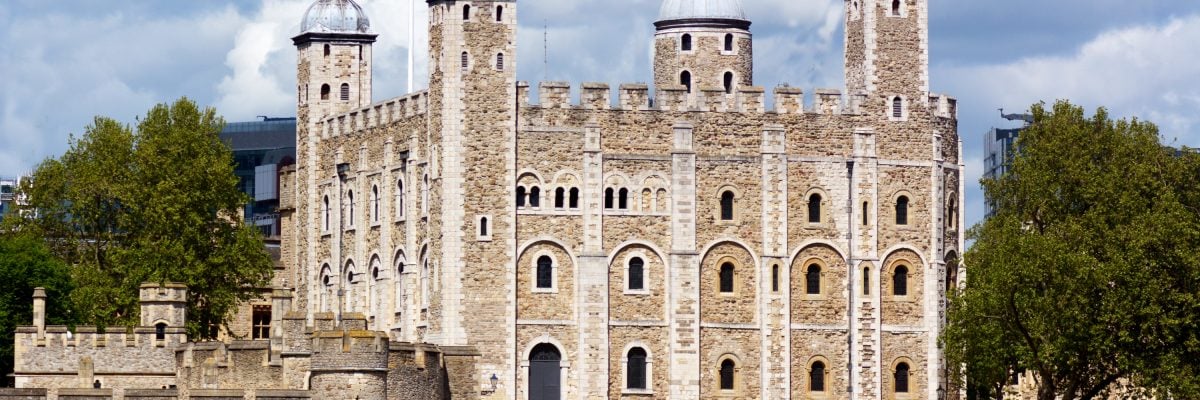
The memorial of Sts. John Fisher and Thomas More has been celebrated in the US in special way since the first Fortnight for [Religious] Freedom in 2012. (This year, today’s feast leads into next week’s Religious Freedom Week—a time of prayer, reflection, and action on religious freedom issues.) Over that same time, though, these two English martyrs have been singled out for criticism in fiction and media commentary. Each year, we’ve had to defend them and emphasize their heroism and sacrifice against new attacks.
Hilary Mantel’s Wolf Hall trilogy—she is still working on the third volume—and the miniseries based on it present Thomas More as a misogynistic, sadistic, and altogether despicable character. Mantel strips More of his integrity and makes the brave ascetic bishop John Fisher look like a cowering fool at Cromwell’s threats. Her fictionalized depictions of Fisher and More have somehow become evidence, in popular arguments, against their canonizations for martyrdom, especially the graphic depiction of More supervising the torture of a suspected heretic. Once that image is in any viewer’s mind’s-eye, all the historical evidence that he never tortured anybody can’t pluck it out.
This year, in First Things, Peter Hitchens wrote another denial of More’s and Fisher’s claim to be called martyrs. Hitchens was upset that More and Fisher are now more famous—even in the Church of England—than Reformer-martyrs Latimer, Ridley, and Cranmer. Although he acknowledges that More and Fisher “were brave and principled, beyond doubt,” he asserts that “they died for political offenses.” In arriving at this conclusion, Hitchens confuses the reason why they would not take either the Oath of Succession (recognizing Anne Boleyn as rightful wife of Henry VIII and queen of England) or the Oath of Supremacy (acknowledging the headship of the king over the English church), claiming that they went “to their deaths over the question of papal authority over the king.”
He gets it almost backwards; reading the reports of their trials makes that clear. John Fisher and Thomas More are truly martyrs because they died defending the unity of the Catholic Church. It wasn’t “papal authority over the king” that inspired their refusal to conform, but monarchial power over the Church that led to their martyrdoms.
From the start John Fisher, bishop of Rochester, had made clear his support for Katherine of Aragon as the rightful queen and wife of Henry VIII. He went so far as to compare himself to St. John the Baptist, willing to give up his head for the sake of the validity of the marriage and the Church’s right to have granted Henry the necessary dispensation to marry her in the first place (she had been married to Henry’s brother Arthur until his premature death). Fisher had also been adamantly opposed to the king becoming supreme head of the Church in England, making sure that the words “as far as God allows” were added to that title in the convocation of bishops. His refusal to take the Oath of Succession in April of 1534, then, should have been no surprise. Like More, he was held in the Tower of London until his trial. Unlike More, Fisher was not allowed access to the sacraments. He had been stripped of his episcopal title by Henry and was not permitted to celebrate Mass.
When he was brought to Westminster Hall for trial on June 17, 1535 he was charged with treason:
He falsely, maliciously, and traitorously wished, willed, and desired, and by craft imagined, invented, practiced, and attempted to deprive the king of the dignity, title, and name of his royal estate, that is of his title and name of supreme head of the church of England, in the Tower, on seventh day of May last, when, contrary to his allegiance, he said and pronounced, in the presence of different true subjects, falsely, maliciously, and traitorously, these words: “The king our sovereign lord is not supreme head on earth of the church of England.”
After he was condemned, Fisher reminded them that he had always been against Henry’s supremacy and that he feared for the king’s soul, hoping he would realize the danger and the “grievous displeasure of the Almighty” before it was too late.
Sir Thomas More was publicly more circumspect. Privately he told Henry VIII that his reading of the Bible, the Fathers of the Church, and the councils of the Church led him to believe that Catherine of Aragon was truly his wife. Henry had appointed More to the office of lord high chancellor knowing More’s opinion and on the condition that he would not participate in the ongoing annulment negotiations. More resigned on May 16, 1532 after the convocation of bishops submitted to Henry VIII and gave him control over the English Church.
Thomas More’s refuge in silence on the king’s new title and his retreat from public life were his attempts not to oppose Henry VIII openly. He was careful never to speak against the supremacy, never to encourage anyone to oppose it. More tried to remain the king’s good servant and God’s first until he was found guilty of treason on July 1, 1535. Even then he did not speak against the king but against parliament for a passing a law that was against God’s will:
For as much as, my lords, this indictment is grounded upon an act of parliament, directly repugnant to the laws of God and his holy Church, the supreme government of which, or of any part thereof, no temporal person may by any law presume to take upon him, being what right belongs to the see of Rome, which by special prerogative was granted by the mouth of our Savior Christ himself to St. Peter, and the bishops of Rome his successors only, whilst he lived, and was personally present here on Earth: it is therefore, amongst Catholic Christians, insufficient in law, to charge any Christian to obey it.
More further spoke about the great cloud of witnesses of Christendom, those on earth and those in heaven, to whom he could appeal for company even though all his colleagues had conformed to their monarch’s wishes. Nevertheless, he hoped that like St. Paul and St. Stephen, he and his judges would meet “merrily in heaven.”
Clearly, neither More nor Fisher died “over the question of papal authority over the king.” Nor did they suffer martyrdom over the mere issue of the “dissolubility of marriage,” as Hitchens implies. Instead they are witnesses to the very statement St. Joan of Arc made at her trial: “About Jesus Christ and the Church, I simply know they’re just one thing, and we shouldn’t complicate the matter.” They suffered martyrdom—Henry mercifully commuted their death sentences to beheading rather than being hanged, drawn, and quartered—in the cause of defending the unity of the Catholic Church from the tyranny of the state.
Image: the Tower of London.



